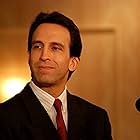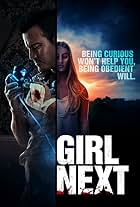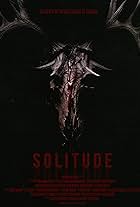Ajouter une intrigue dans votre langueScreenwriter Zeph E. Daniel, formerly known as Woody Keith, stepped out of his closet-of-dark-secrets and told the incredible story behind this morbid, subversive oddity of a film.Screenwriter Zeph E. Daniel, formerly known as Woody Keith, stepped out of his closet-of-dark-secrets and told the incredible story behind this morbid, subversive oddity of a film.Screenwriter Zeph E. Daniel, formerly known as Woody Keith, stepped out of his closet-of-dark-secrets and told the incredible story behind this morbid, subversive oddity of a film.
- Réalisation
- Scénario
- Casting principal
- Récompenses
- 1 victoire au total
Photos
Avis à la une
This is a documentary that I got the chance to see thanks to Erika from Gold Dust PR. She reached out to see if I wanted to check out the screener for review. I've seen Society once, so I was intrigued to learn more about this. What made me nervous was that I added this to my watchlist and saw that there were people critical of it. I still wanted to watch to form my own opinion.
Synopsis: screenwriter Zeph E. Daniel, formerly known as Woody Keith, stepped out of his closet-of-dark-secrets, and told the incredible story behind this morbid subversive oddity of a film, Society.
Now we start this off hearing from important voices in the film community. Critics Alan Jones and Anthony Timpone among them. There's also David Gregory, who is the head of Severin films. They're here to give an idea about Society and how it slid under the radar when it came out. It has become a cult classic for how wild it is. We even hear from Screaming Mad George who did the effects.
It is from there that we hear from the writer of the screenplay, Daniel. At the time he wrote the screenplay, he was under his birth name of Woody Keith. We get to know his background and his beginnings. He was born into a powerful family in California. He didn't necessarily live up to expectations and that put pressure on him. Things all changed for him when he teamed up with Brian Yuzna. One of the interviews is with these two hanging out.
What I'll say from here is that things get heavy. One of my friends from the community, Lacy Lou, interviews him as well as his wife, Patricia Brown. Zeph tells a horrific tale about how he believes that he was molested as a child as part of a Satanic ritual. He was then hospitalized. He then wrote specifics of his ordeal into Society. This doc even syncs up what he's telling with showing those sequences from the film.
Now what I'll say is that whatever abuse Zeph endured growing up, that is horrific. I'm not sure how much of what he's saying here I believe. I cannot disprove anything so I will say that. I just have issues with believing when his claims follow almost beat for beat with Satanic Panic stories from the 1980s which were all disproven. It also doesn't help your case for getting belief when his wife uses the term 'plandemic'. It immediately made me see that they're conspiracy theorists. With how outrageous the things that they're saying are, there is no way to prove them wrong so in their mind then that means they're right. I will stop here though.
To shift gears, I will acknowledge that I cannot hold what I'm going to say against the film. I wanted more of a documentary about Society. If they could have done that and still incorporated what Zeph claimed, that would help. I can't fault a film though for what I want and must judge it on what we get. I'll be honest though, I feel for him, but I also felt we drone on about it longer than needed.
There are interesting people here that are interviewed and I just want more of that. Yuzna, George and the film critics/historians have a wealth of knowledge that isn't tapped into much. I will credit Yuzna though for being sympathetic to Zeph. It makes me realize that he's a great guy. This is well made though. There were sound issues with Richard Stanley's interview, but the rest was fine. That is an interview that feels out of place. They bring up he's a survivor of sexual abuse, which fits. He has his own allegations about domestic abuse which makes this then feel tone deaf. I'll then end by saying that the editing of footage to match up stories being told was good. That makes what Zeph is saying feel more real. The focus here just isn't as interesting as making a shorter documentary like we get.
My Rating: 4.5 out of 10.
Synopsis: screenwriter Zeph E. Daniel, formerly known as Woody Keith, stepped out of his closet-of-dark-secrets, and told the incredible story behind this morbid subversive oddity of a film, Society.
Now we start this off hearing from important voices in the film community. Critics Alan Jones and Anthony Timpone among them. There's also David Gregory, who is the head of Severin films. They're here to give an idea about Society and how it slid under the radar when it came out. It has become a cult classic for how wild it is. We even hear from Screaming Mad George who did the effects.
It is from there that we hear from the writer of the screenplay, Daniel. At the time he wrote the screenplay, he was under his birth name of Woody Keith. We get to know his background and his beginnings. He was born into a powerful family in California. He didn't necessarily live up to expectations and that put pressure on him. Things all changed for him when he teamed up with Brian Yuzna. One of the interviews is with these two hanging out.
What I'll say from here is that things get heavy. One of my friends from the community, Lacy Lou, interviews him as well as his wife, Patricia Brown. Zeph tells a horrific tale about how he believes that he was molested as a child as part of a Satanic ritual. He was then hospitalized. He then wrote specifics of his ordeal into Society. This doc even syncs up what he's telling with showing those sequences from the film.
Now what I'll say is that whatever abuse Zeph endured growing up, that is horrific. I'm not sure how much of what he's saying here I believe. I cannot disprove anything so I will say that. I just have issues with believing when his claims follow almost beat for beat with Satanic Panic stories from the 1980s which were all disproven. It also doesn't help your case for getting belief when his wife uses the term 'plandemic'. It immediately made me see that they're conspiracy theorists. With how outrageous the things that they're saying are, there is no way to prove them wrong so in their mind then that means they're right. I will stop here though.
To shift gears, I will acknowledge that I cannot hold what I'm going to say against the film. I wanted more of a documentary about Society. If they could have done that and still incorporated what Zeph claimed, that would help. I can't fault a film though for what I want and must judge it on what we get. I'll be honest though, I feel for him, but I also felt we drone on about it longer than needed.
There are interesting people here that are interviewed and I just want more of that. Yuzna, George and the film critics/historians have a wealth of knowledge that isn't tapped into much. I will credit Yuzna though for being sympathetic to Zeph. It makes me realize that he's a great guy. This is well made though. There were sound issues with Richard Stanley's interview, but the rest was fine. That is an interview that feels out of place. They bring up he's a survivor of sexual abuse, which fits. He has his own allegations about domestic abuse which makes this then feel tone deaf. I'll then end by saying that the editing of footage to match up stories being told was good. That makes what Zeph is saying feel more real. The focus here just isn't as interesting as making a shorter documentary like we get.
My Rating: 4.5 out of 10.
Meilleurs choix
Connectez-vous pour évaluer et suivre la liste de favoris afin de recevoir des recommandations personnalisées
Détails
Box-office
- Budget
- 600 000 $US (estimé)
- Durée1 heure 25 minutes
- Couleur
Contribuer à cette page
Suggérer une modification ou ajouter du contenu manquant

Lacune principale
By what name was The Darkside of Society (2023) officially released in Canada in English?
Répondre

















